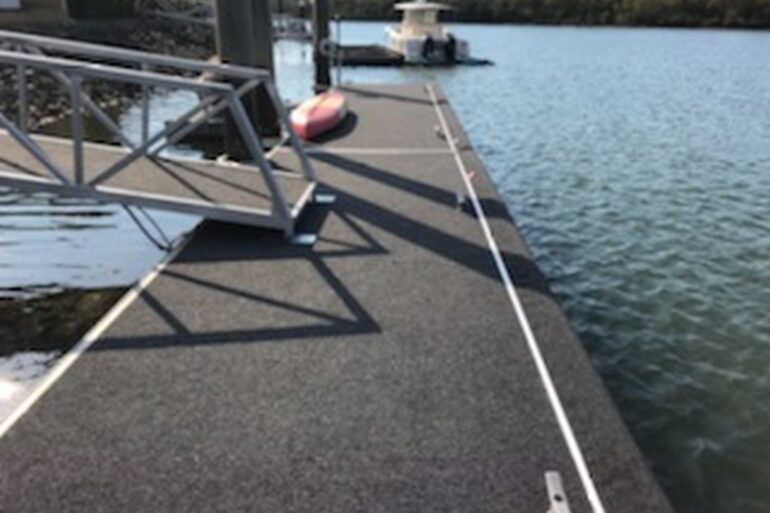
No doubt, a pontoon is a sizable investment, just like a boat or car. Therefore, when purchasing a pontoon, chances are, you’re going to devote the same amount of time and effort researching to find out which is best for you, based on your needs and budget. And, we highly recommend you do, because there are many factors to consider before you can rest assured you’ve selected not only the right pontoon but the right pontoon builder also.
At Micks Marine Maintenance, we have been building, relocating, repairing and maintaining pontoons on the Gold Coast and Sunshine Coast for the past 4 years under the Micks Marine Maintenance umbrella however 25+years within the industry building pontoons, bridges, barges, workboats etc for various other companies – so you might say we have a little bit of experience and have all the need-to-know information to help you in your quest.
To help you make a sound decision, I have answered questions we are most often asked about pontoons.
What do I need to know before buying a pontoon?
This question is one of the most asked, and unfortunately, has no short answer. So, instead, I’ll list the most important questions you need to be able to answer at the time of contacting a pontoon builder:
- What will you be using the pontoon for?
- What size boat or PWC do you intend to moor on it?
- How wide is your waterfront boundary?
- What is the quayline for your area?
- What is your budget?
How much does a floating pontoon cost?
Just like a boat, there is no one fixed price for a pontoon and seldom are any two ever the same. Pontoons are custom made and designed to meet individuals needs. They can be different in size, type, and shape, and then have different finishings and accessories. For example, one may have a mesh gangway; another may have a carpeted gangway.
Generally speaking; however, you should expect to pay in excess of $20,000 for a 5-meter cable pontoon with a gangway. The cost then goes up based on size and type, amongst other factors. Piled pontoons are the most expensive – but they’re also the highest in quality.
What is the difference between a jetty and a pontoon?
There are vast differences between a jetty and a pontoon. While the two offer the same functionality, jetties are fixed in place and offer no movement whatsoever. Pontoons, on the other hand, are designed to rise and fall with the tides. As such, pontoons handle changing weather conditions better, which in turn, causes less damage to boats and PWCs, and less damage to the pontoon itself.
The other major difference between the two is the materials used in their construction. Jetties are made from timber and pontoons are predominantly made from aluminium. As such, jetties are prone to rotting and require more maintenance than their counterparts.
How do you secure a pontoon?
The type of pontoon determines how it is secured in place. There are various types of pontoons available, but the most common pontoons installed on the Gold Coast and Sunshine Coast are cable pontoons, strut arm pontoons, and piled pontoons.
Their name says it all; cable pontoons are secured in place by stainless steel cables, which are attached at each end of the pontoon deck, crossing over one another to create an ‘X’, and to two concrete mooring blocks, which sit on the shore. Strut arm pontoons are similar to cable pontoons but rather than relying solely on cables; they use a sturdy aluminium strut arm that connects directly from shore to one or both sides of the pontoon deck. They often utilise cables for additional stability. Lastly, piled pontoons are secured in place with robust piles. The piles connect to the pontoon deck through brackets and are hammered into the seabed to provide superior installation.
You can read more about the pontoon types here.
Conclusion
Pontoons are, in my opinion, a must-have feature to any waterfront property. However, they are an investment, and just like any investment, the buying process requires a little research before you can be rest assured you’re making the right decision.
By knowing the answers to questions such as those proposed in the article, you will be well-positioned to make an educated decision. But most importantly, understand that pontoons are not the same as jetties (they are much better!) and there are various types of pontoons, which stipulate how they are secured to a location.
If you any questions that I have not answered in this article, then please, feel free to email me or give me a call on 0431 778 468.